
CONTACT US
Affordable Homeownership
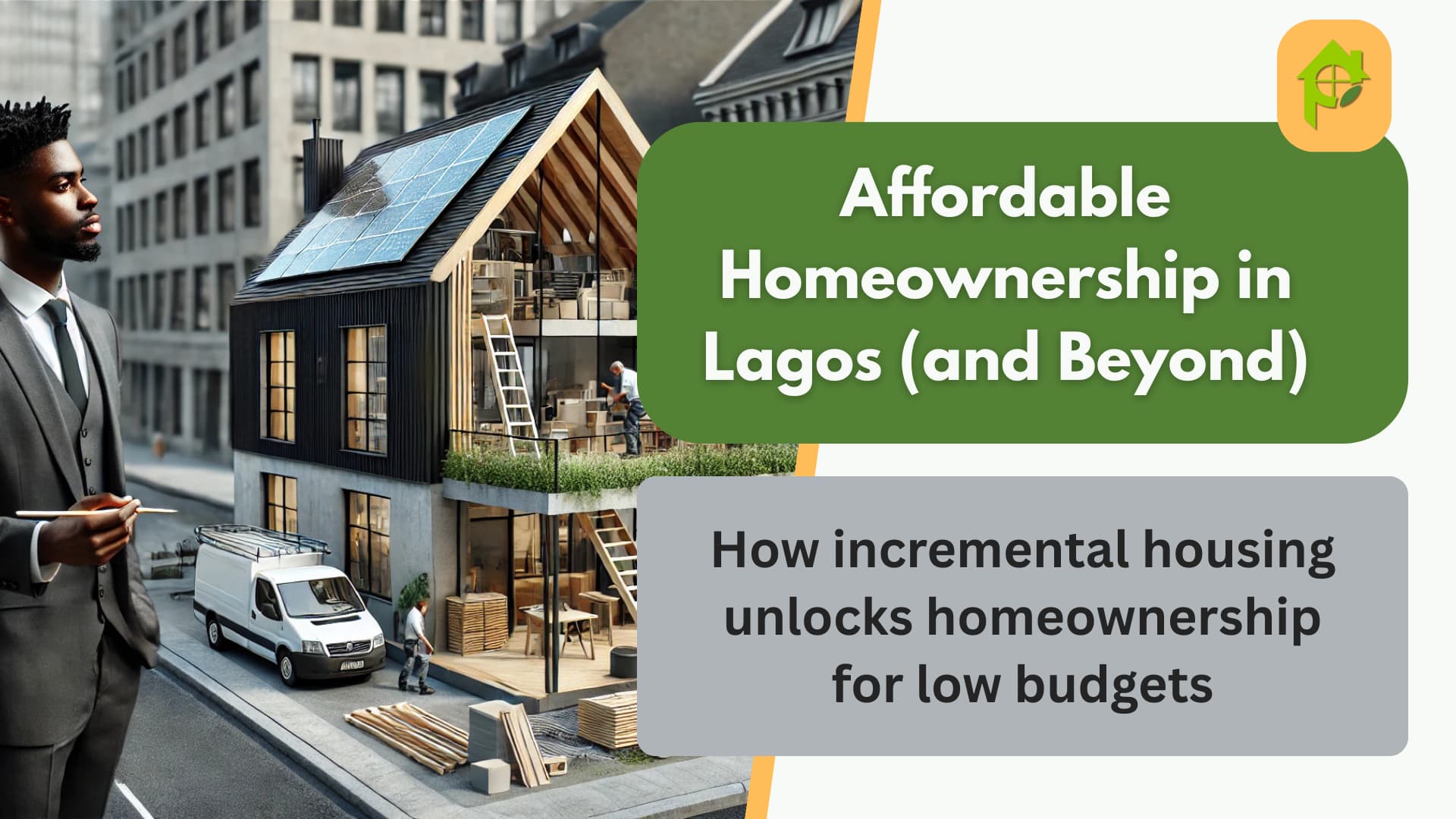
SNEAK PEEK
When people debate “affordable housing” in Nigeria, the conversation almost always circles around cost or size. Understandably, “Affordability” is subjective. That is, for one family, ₦5m is affordable, while for another, ₦500k is already a stretch.
This is why the debate often gets stuck.
But here’s the problem:
Affordable ≠ less.
Cheaper doesn’t automatically mean affordable.
Bigger doesn’t always mean livable.
Meaning that the real question we should be asking is:
How do we design homes that fit people’s budgets, grow with them, and still deliver dignity?
And since we all dream of owning a home, even though not everyone has ₦50–₦100 million lying around. How can we all then access homeownership at different budget points without sacrificing dignity or quality of life?
Incremental housing solves the riddle as:
Affordable = budget-smart housing that adapts to your reality.
Instead of trying to fix one rigid definition of “affordable,” it allows multiple entry points… meaning different households, at different income levels, can access housing without being locked out.
So what is Incremental housing, and what makes it a viable solution to the housing situation in Nigerian (& African) cities?
It’s simple (and life-changing). So imagine this:
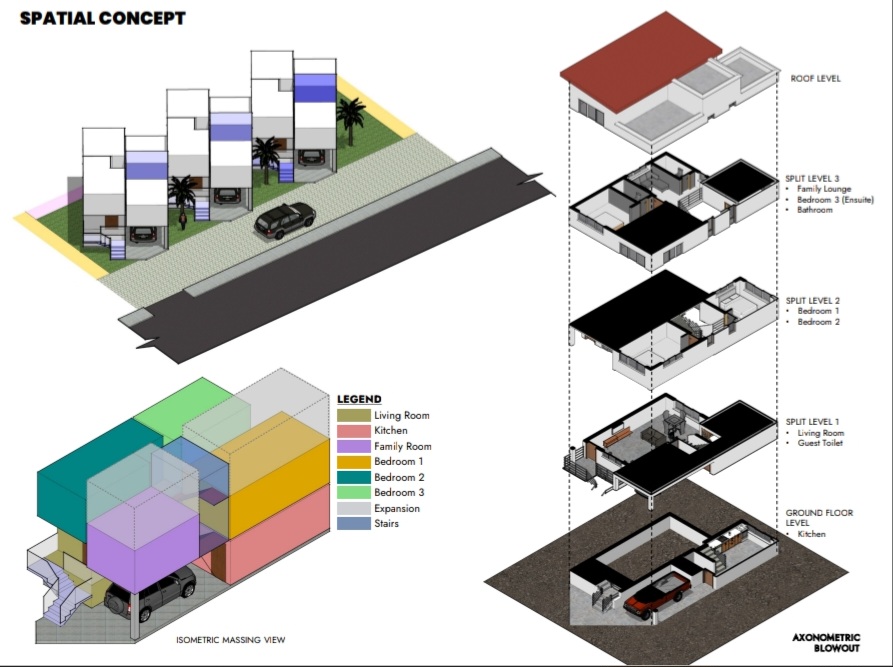
And not just the house only. You live in a well-planned community with:
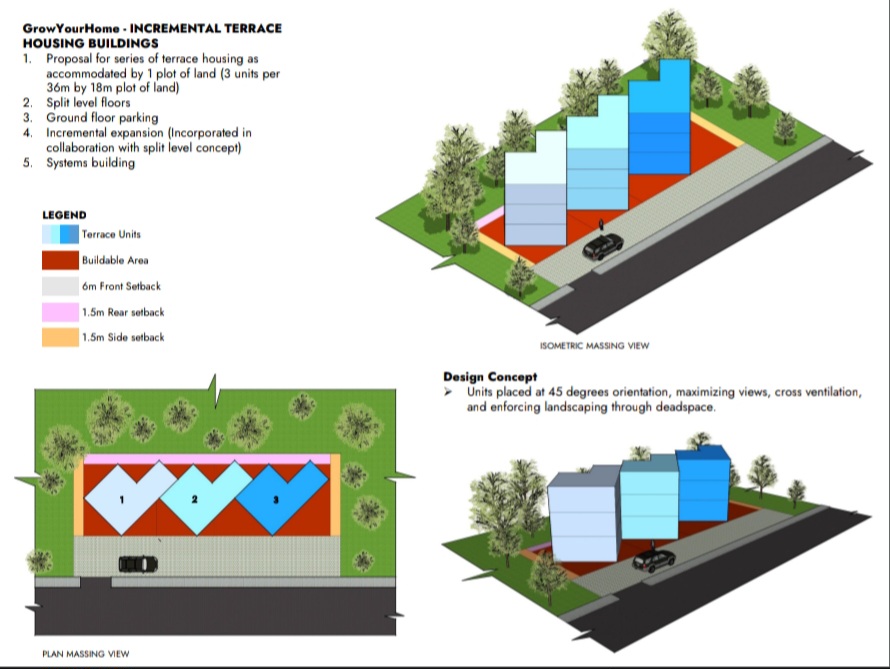
This already looks like a movie script, but it's not. It is mainly used when any serious government wants to promote organic (self-help) housing with little government intervention.
Let's explore how it makes housing more affordable.
Incremental housing is a design/building strategy that lets you start using a building in the simplest form you can afford, especially when you don’t have to own it all at once, and then complete the rest of the building as you become financially capable.
This is not a ‘trial by error’ theory. It’s what people are already doing. And it typically comes in one or combination of these, and with varying levels of professional supervision/control:
- Site & services: The community/estate is already planned with layouts and (skeletal) infrastructure framework (roads, drainage, electricity) already installed, sometimes with the building foundation. Which you can then build and complete gradually at your pace.
- Horizontal expansion: Start with a small room and/or parlour, add more rooms later.
- Vertical expansion: Build a single storey now; add more floors later.
In Chile’s Quinta Monroy, families received titled land with the core housing frame (foundation, pillars and some basic rooms) and built from there. In Egypt and India, families begin small and add floors as their needs grow. Here in Nigeria too, many start with a "boys’ quarters" then add the main house when they can afford it.
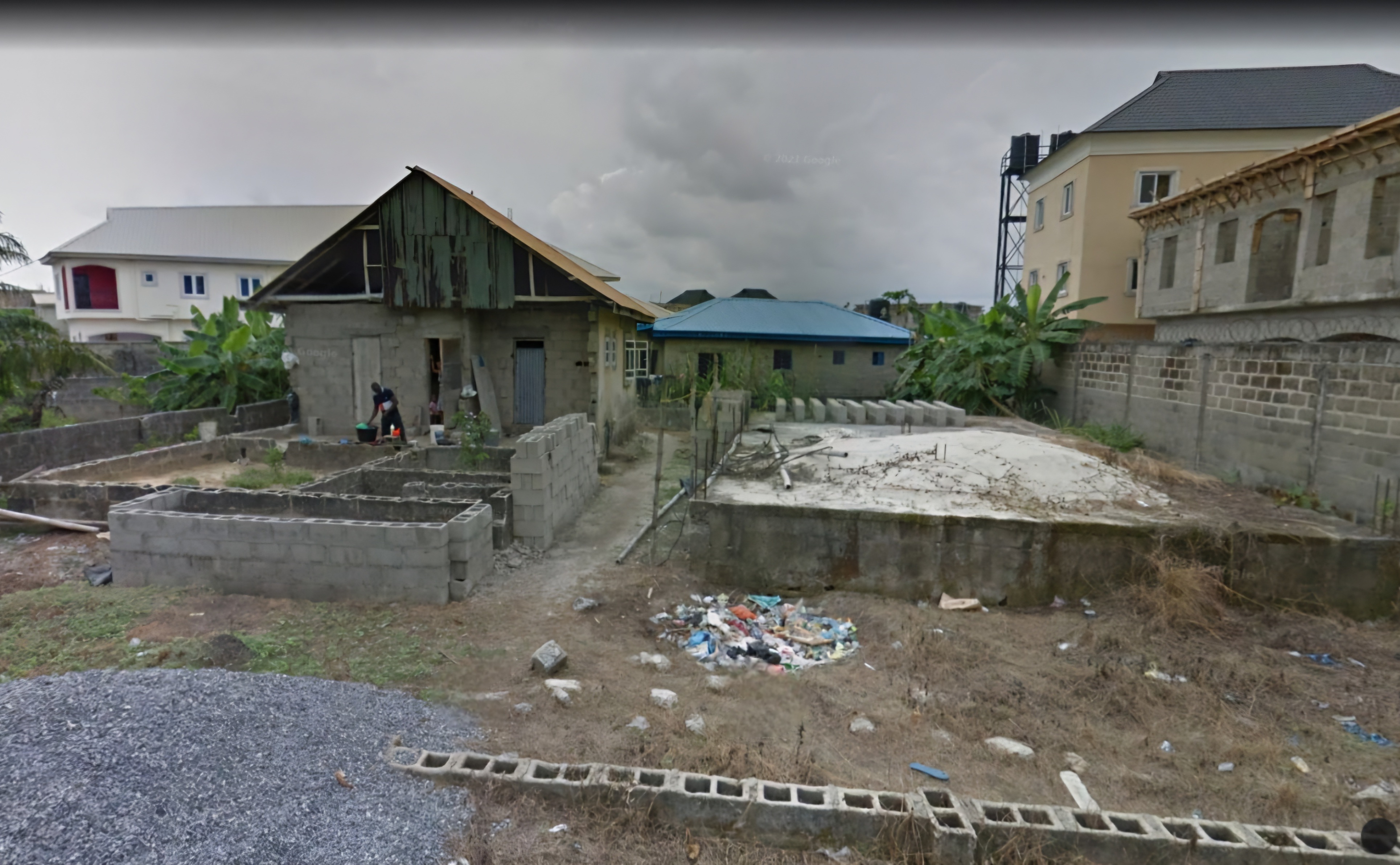
Because it is done in isolation, with poor (or lack of) planning.
How many times have you seen a building sit “at foundation level” for two years, then sprout columns, and then roofed after 5 years because the owner couldn't afford a one-time build?
That traditional method no longer appeals to the public, especially when we all dream of owning stylishly built homes in gated estates and planned neighbourhoods. Many people would rather keep saving than be associated with the stigma of living in an uncompleted building.
Unfortunately, what we see as a stigma, is a globally recognized and internationally celebrated housing design/development strategy.
The difference is that incremental housing brings intentional design, planning, and community into the process—making expansion safer, more affordable, and more sustainable.
It’s no longer “build anyhow and pray.” It now starts simple, and grows smart. It’s housing designed to meet you where you are today while retaining style, trend and aesthetics as it evolves with (or into) your tomorrow
Incremental housing offers a practical middle ground. If we analyse and compare:
It lets people start small, within their budgets, on land that truly holds value, and then expand their homes gradually as income grows. This way, affordability stops being about cutting size or quality and becomes about fitting housing to real economic realities. It offers a way forward as:
At PetitHaus, we’re piloting this vision. We are combining design, tech, and community into one blueprint for affordable homeownership at scale. Thus changing the approach to affordable housing from subsidized/low-cost housing to tailored housing that blends convenient land ownership with phased completion, and future-proof design.
Here’s the game-changer.
Incremental housing paired with fractional co-ownership unlocks homeownership for many.
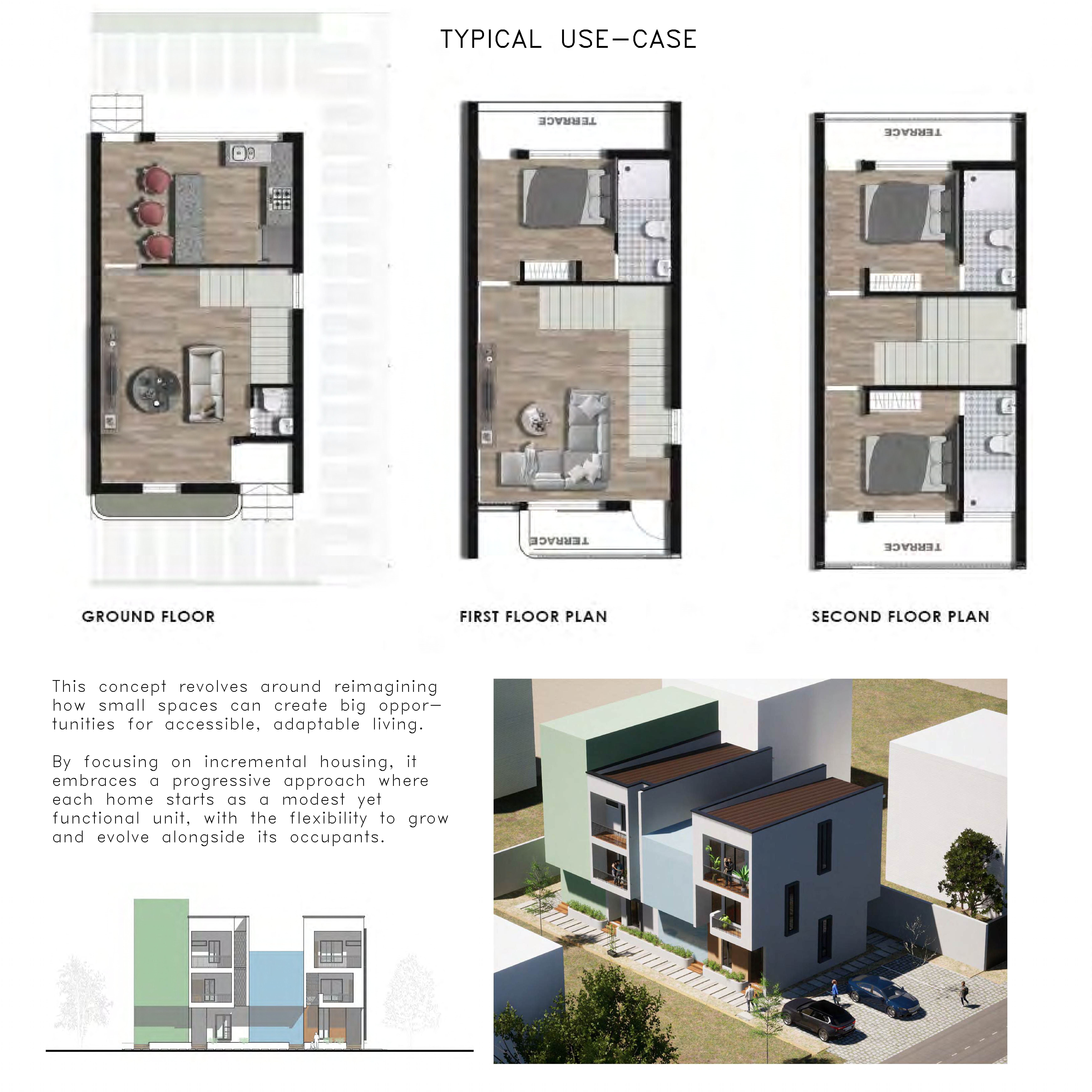
It shifts the narrative from "waiting until you’re rich" to "start where you are, build what you can" with a simple plan:
Because: “If you can’t afford it all at once, it doesn’t mean you shouldn’t start.”
On one hand, Lagos actively represents the singular symbolism of Nigeria's (& Africa's) social, political, cultural and economic diversity. On the other, it holds the standard for setting the pace for other African cities. Its population growth, demographic characteristics, as well as its geographic relevance makes it perfect for affordable housing solutions/interventions.
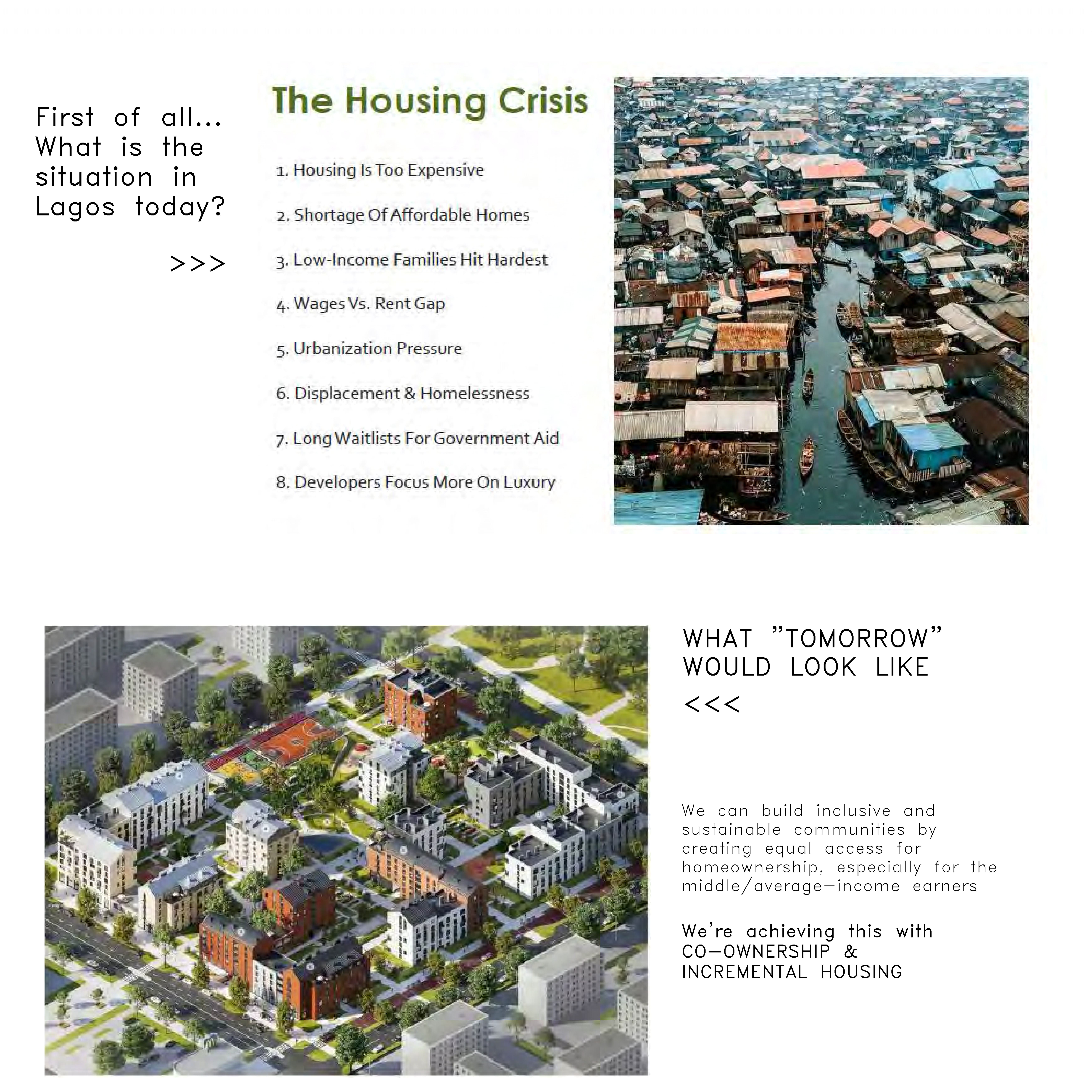
But the housing crisis will not be solved with more “luxury estates” or one-size-fits-all government projects. It will be solved when we design homes that evolve (grow) with people, meeting them where they are today, while preparing them for tomorrow.
That’s where incremental housing comes in.
Incremental housing is not just an idea. It’s a piece of the blueprint puzzle for unlocking affordable homeownership in Lagos, and across Africa.
At PetitHaus, we’ve built this into our Land-Pool, enabling everyday Nigerians to co-own land, build in phases, and grow their homes affordably and responsibly. This mix delivers a combination of values that makes housing and homeownership:
Ready to start?
Visit PetitHaus Store to explore listings designed for incremental, dignified, and affordable homeownership. We will walk you through the entire process
01.

02.
Category
Discover insights into creating affordable homeownership with PetitHaus.
